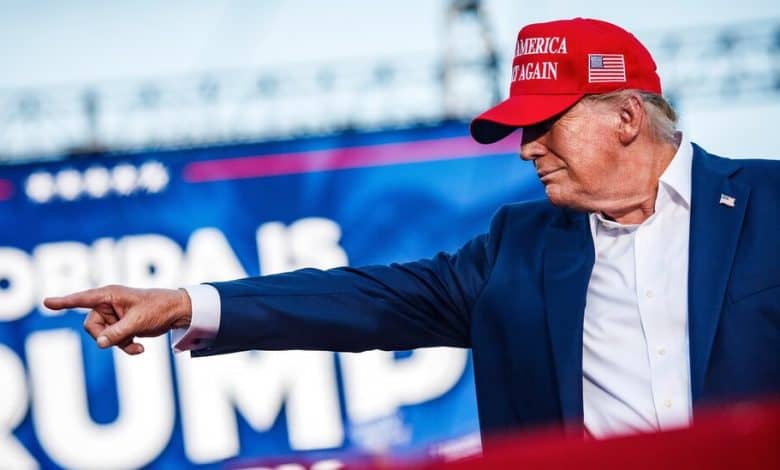Once a G.O.P. Rallying Cry, Debt and Deficits Fall From the Party’s Platform

When Donald J. Trump ran for president in 2016, the official Republican platform called for imposing “firm caps on future debt” to “accelerate the repayment of the trillions we now owe.”
When Mr. Trump sought a second term in 2020, the party’s platform pummeled Democrats for refusing to help Republicans rein in spending and proposed a constitutional requirement that the federal budget be balanced.
Those ambitions were cast aside in the platform that the Republican Party unveiled this week ahead of its convention. Nowhere in the 16-page document do the words “debt” or “deficit” as they relate to the nation’s grim fiscal situation appear. The platform included only a glancing reference to slashing “wasteful” spending, a perennial Republican talking point.
To budget hawks who have spent years warning that the United States is spending more than it can afford, the omissions signaled the completion of a Republican transformation from a party that once espoused fiscal restraint to one that is beholden to the ideology of Mr. Trump, who once billed himself the “king of debt.”
“I am really shocked that the party that I grew up with is now a party that doesn’t think that debt and deficits matter,” said G. William Hoagland, the former top budget expert for Senate Republicans. “We’ve got a deficit deficiency syndrome going on in our party.”
The U.S. national debt is approaching $35 trillion and is on pace to top $56 trillion over the next decade, according to the Congressional Budget Office. At that point, the United States would be spending about as much on interest payments to its lenders — $1.7 trillion — as it does on Medicare.